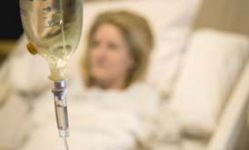Novel Gel Combats Problematic Hospital Bacteria
Scientists manufactured a gel effective at combating highly resistant hospital superbugs by attacking the biofilm protecting bacteria like staphylococcus and E. coli.

Scientists at Queen’s University Belfast in the UK and Brandeis University in Massachusetts manufactured a gel effective at combating highly resistant hospital superbugs.
Bacterium such as Pseudomonas aeruginosa, staphylococcus, and E. coli create biofilms, a jelly-like layer that protects the bacteria and are immune to therapy and antibiotics.
“The presence of biofilm bacteria, which thrive on implant surfaces, are a huge burden on healthcare budgets, as they are highly resistant to current therapeutic strategies,” the investigators reported in Biomacromolecules.
Additionally, these bacteria are especially problematic for medical implants, such as hip replacements and catheters. When present in implants, the bacteria rapidly grows, which can lead to a painful removal of the infected implant, said lead researcher Garry Laverty from the School of Pharmacy at Queen’s University.
To combat and penetrate the biofilm, investigators created an antibacterial gel made of natural proteins. The gel, which is comprised of the same peptides responsible for creating human tissue, was pinpointed by researchers as a promising candidate.
By “reducing the size of the R-group methylene chain on cationic moieties,” the gel successfully reduced antibiofilm activity, the authors reported in Biomacromolecules. Additionally, the researchers noted that lysine conjugated variants with highly potent hydrogels decreased Staphylococcus epidermidis’ biofilm by 94%.
“Ultrashort cationic self-assembled peptides represent a highly innovative and cost-effective strategy to form antibacterial nanomaterials,” the authors explained.
“Our gels are unique as they target and kill the most resistant forms of hospital superbugs. These molecules are modified slightly in the laboratory to allow them to form gels that will rapidly kill bacteria,” Laverty said in a statement. “This is further evidence of Queen’s research advancing knowledge and changing lives.”